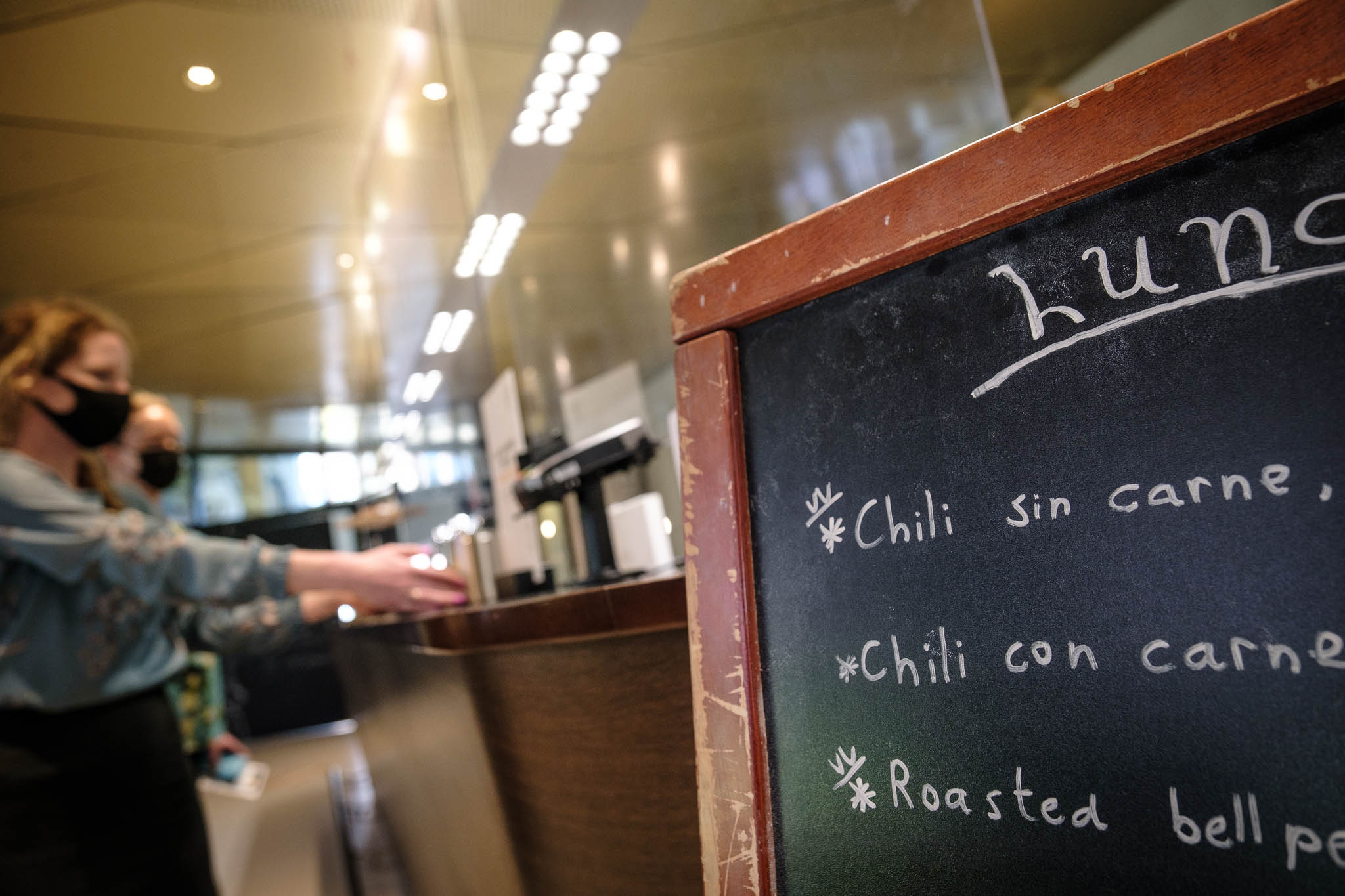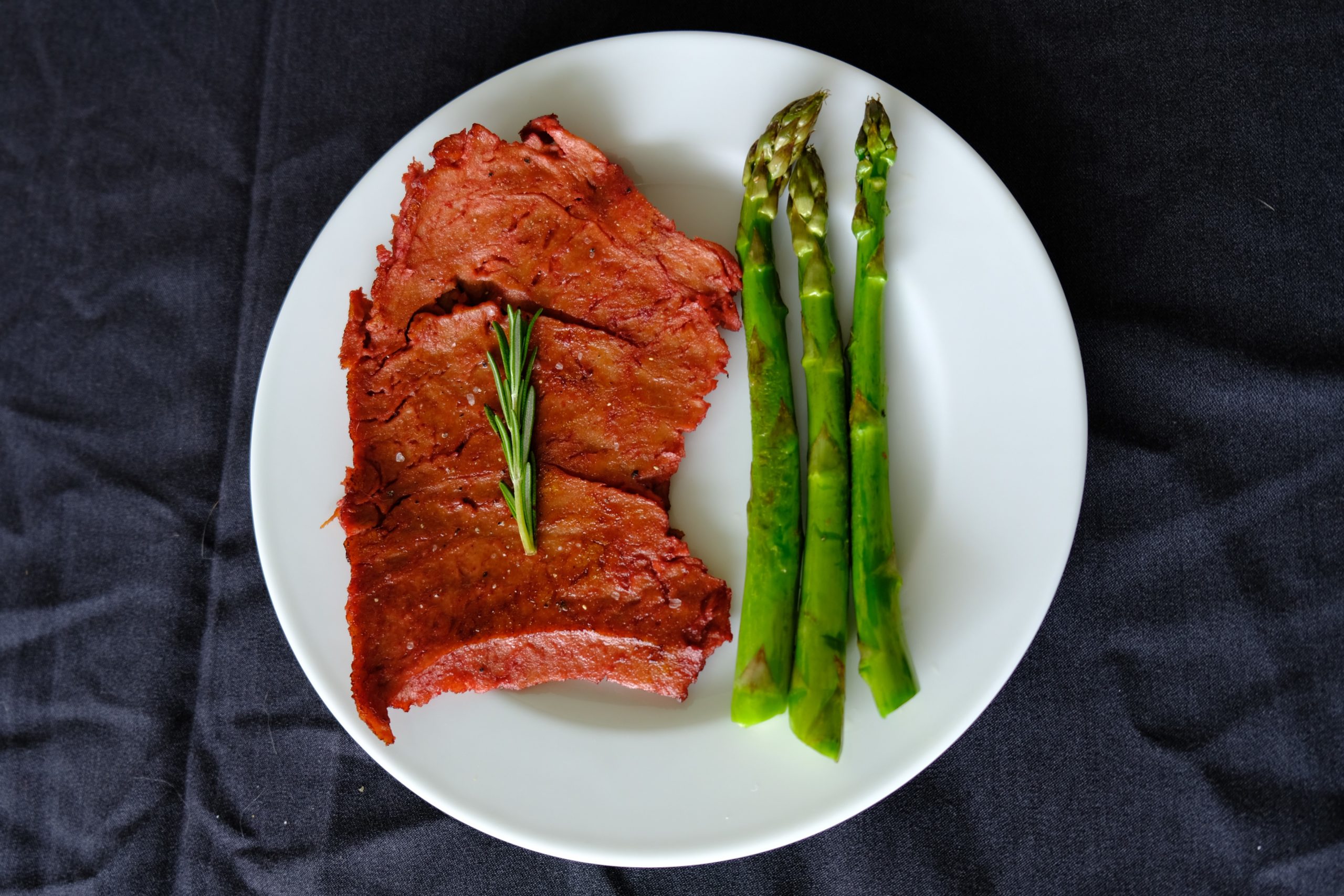WUR employees could vote last month to select two out of the last six research proposals of the Community Fund Protein Transition. This fund stimulates ‘innovative science projects for a sustainable, healthy and equitable protein transition’.
A total of 436 employees cast their votes. The three winners received a joint total of 529 votes, 229 of which were for Microbes4Food. Each project is to receive approximately 96,000 euros to implement its research.
Bacteria burger
The Microbes4Food project aims to transform CO2 into edible proteins with the help of a special bacteria that feeds on air: it grows through CO2, nitrogen and ammonia. Nico Claassens (Microbiology) studies the bacteria’s growth. Julia Keppler (Food Process Engineering) and Laurice Pouvreau (WFBR) analyse the properties of the proteins derived from the bacteria.
Will we be eating bacteria burgers in the future? ‘That is certainly achievable within five to ten years,’ Classens states. ‘This is still an explorative study, but we are already working on follow up plans.’ The data this research will yield provides the researchers with a direction for the future. For example, how the protein may best be applied.
Safe meat substitutes
A second project aims to investigate whether people may develop allergies to the proteins that are used in meat substitutes. Particularly as a result of cross-reactions. This means that people with a peanut allergy may also be allergic to proteins in other legumes in vegetarian meat. To date, no research has been done to determine whether extreme processing (such as heating) of the proteins exacerbates or reduces the cross-reactions. ‘The coin could flip either way,’ says Tamara Hoppenbrouwers (Food Quality and Design).
The researchers developed a validation method to predict allergies to new protein products. Thanks to the Gerrit Grijns Initiative, immunologists and nutrition experts collaborate in the project. ‘Being able to connect people is fabulous,’ Hoppenbrouwers states. ‘We are all doing the same thing, but within different niches. We can fortify each other, and this project is the first step.’
Healthy food at work and in school
The third winner focuses on acquiring plant-based products for public organisations such as schools, hospitals and government organisations. This may well be a launching pad for a wider protein transition within society. The researchers wish to organise a large event next year, the Public Procurement Summit, to accelerate the protein transition with help from professionals from within the sector. Jeroen Candel (Public Administration and Policy). ‘We want to remove obstacles in legislation, behaviour, knowledge and finance, and we want to learn from each other.’
Candel and his colleagues have received many enthusiastic reactions from people in the government, health and education sectors. ‘The arable farming sector is also interested in contributing so that they can respond to a change in demand adequately and timely.’ As far as Candel is concerned, falafel made from chickpeas will soon be the favourite snack in school cafeterias.

 Cafeteria in Orion. One of the winners focuses on buying plant-based products for public organisations such as schools, hospitals and governing bodies. Photo Guy Ackermans
Cafeteria in Orion. One of the winners focuses on buying plant-based products for public organisations such as schools, hospitals and governing bodies. Photo Guy Ackermans 

